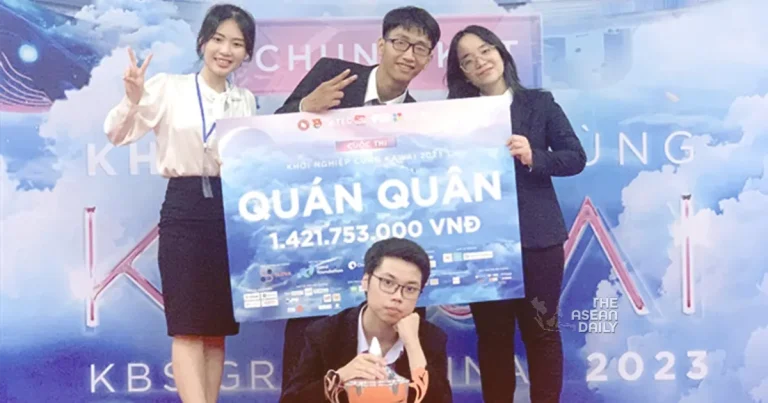5-1-2024 (HANOI) A group of innovative students in Hanoi has garnered attention by successfully creating biomass blocks from discarded coffee grounds, offering an eco-friendly alternative fuel. The team, consisting of Pham Minh Long Hai, Nguyen Xuan Bao, Bui Nguyen Khanh Linh, and Nguyen Minh Anh from various Hanoi universities, recently secured the top spot in the Start-up Competition 2023 organized by the Hanoi Youth Union.
The biomass blocks, known as “Coffuel,” showcase numerous advantages over traditional fuels like gas, firewood, and coal. The blocks, derived from coffee grounds, prove efficient for industrial boilers, heating, cooking, and outdoor activities.
Founder Pham Minh Long Hai highlighted the blocks’ exceptional performance, burning longer and producing heat that is 120% stronger than traditional wood pellets. Notably, these blocks contribute to environmental conservation by reducing carbon dioxide emissions by up to 90% compared to coal.
Inspired by the wasteful disposal of coffee grounds, Hai, specializing in food engineering, collaborated with his friend Nguyen Xuan Bao, a Chemistry and Life Science student. The Coffuel project began in 2022, initially aiming to create shirts and cups from coffee grounds. However, after facing challenges and high costs, they pivoted to producing biomass blocks as an alternative to coal, wood, and gas.
The team faced numerous challenges, including funding constraints, workshop shortages, and technical issues. Undeterred, they worked tirelessly, dedicating 12-16 hours a day, seven days a week. The road to success was paved with controversies and uncertainties, but the team’s determination and collaboration prevailed.
After over a year of research and experimentation, the team successfully created biomass blocks using coffee grounds and sawdust. The process involves treating coffee grounds for odor, screening sawdust for size, cleanliness, and moisture, and subjecting the materials to an industrial drying system. The final product undergoes a high-pressure pressing process to form blocks.
Despite initial setbacks, the team persevered, constantly improving their techniques. The biomass blocks can now be stored for four to five months. The students aim to bring their innovative product to market and have already received orders from customers. The Coffuel project has not only won awards but also earned the trust of consumers, providing the team with motivation to explore foreign markets and export their sustainable energy solution.




